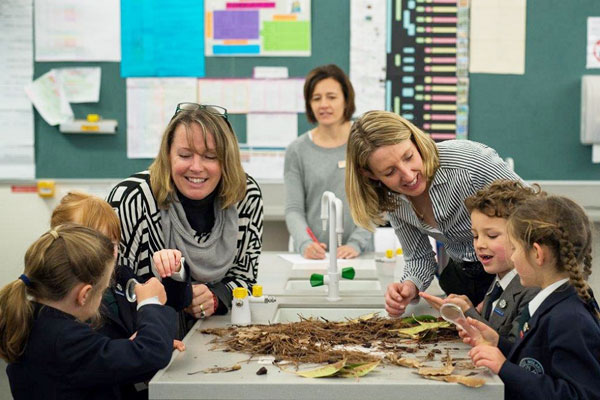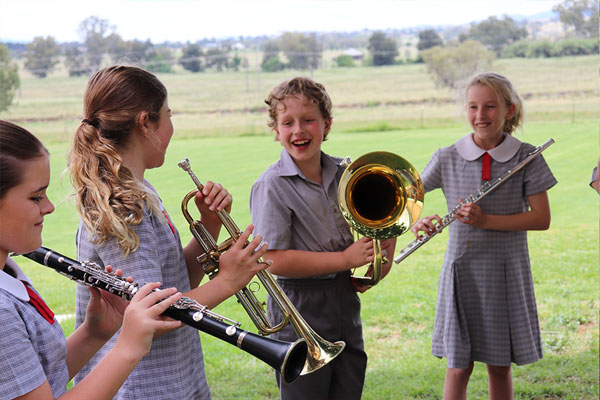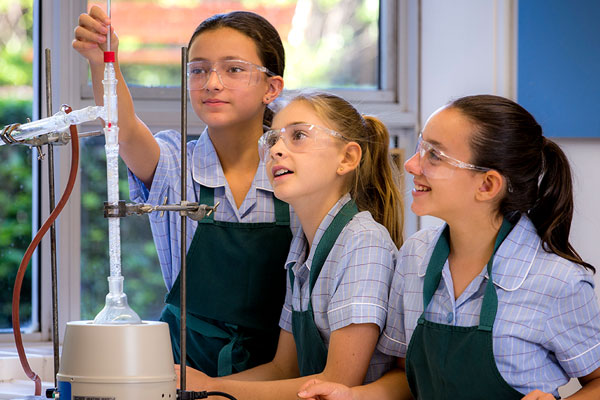“It is not enough that teachers' work should be studied: they need to study it themselves.”
(Stenhouse, 1975)
Teachers and school leaders regularly question and reflect on what is happening in their schools to improve practice. For many, this includes engaging with research generated by others, but increasingly educators are also undertaking their own rigorous school based research. They do this to gain greater insights about their own contexts1,2,3 as well as contribute to the broader educational discussion4,5.
As a professional activity, conducting school based research can provide opportunities to transform research knowledge into pedagogical knowledge, increase conceptual understanding, and facilitate reflection and questioning of practice6. It can also increase educator understanding of the "use and purpose of research knowledge in educational change"7, and a range of research processes8. This helps to improve educator research literacy and capacity, and their linking of theory to classroom practice9.
Research projects provide opportunities to gather evidence that is directly connected to the school’s needs and impact student outcomes. The knowledge generated often makes substantial contributions to new insights in, and beyond, individual schools and classrooms.

Kinross Wolaroi School investigates collaborative approaches to teaching primary science and technology
The size and focus of school based research projects vary in independent schools, ranging from small initiatives conducted in single classrooms to those supporting whole school change. Projects are undertaken for a variety of reasons, such as improving literacy, student wellbeing and mental health, developing learner dispositions and inclusive education. These factors influence how research is conducted, who participates, and how knowledge is shared.
Independent schools engage in school based research for a range of reasons some of which are outlined below.
Research as a driver of change
School based research is often used as a driver of whole school change. Those who achieve successful long term change align their investigations to the school’s strategic direction. Research is used to build an in-depth, contextualised evidence base for the targeted strategic focus. Schools are complex ecosystems and face a range of challenges. Evidence gathered can be used to surface strategies to navigate and clarify a way forward.

Carinya Christian School researches the impact of learning music on student literacy
Research to affirm and/or clarify issues or direction
School based research can be used to generate evidence about the impact, or applicability, of an intervention or strategy. Piloting, evaluating and scaling is supported by these research activities. Data collected are unique to the school’s context and help to test assumptions, clarify thinking, affirm directions, and provide evidence to support decision making.
Research for an in-depth understanding of an existing area
School based research can be used to deeply explore a new, or previously identified context-specific area. Time given to undertake situated research of this kind allows schools to gather authentic, detailed and rigorous evidence. Knowledge gained through the research process can provide a shift from opinion to evidence based solutions that guide educators in their decision making.

Roseville College undertakes school based research to foster students’ learning dispositions
Research as professional learning
School based research provides an opportunity to build educator research capacity while simultaneously supporting professional learning aligned with the school’s strategic focus. The embeddedness of research enables context specific learning opportunities, targeting skill development and providing direct links between research and practice. It also assists in fostering research communities within and beyond the school and empowers educators to actively engage in their professional growth pathways. Research is recognised as one of the most powerful modes of professional learning for educators and supports lifelong learning.
Part 2 of this series will focus on the benefits of undertaking school-based research.
The team at The Evidence Institute undertakes research and shares evidence focusing on a range of areas impacting the education sector. We aim to generate high-quality evidence to transform educational futures for independent school students, staff, and communities. Through a range of initiatives and tailored supports, the team also partners with schools to bridge the research to practice gap, build school-based research capacity, and enhance the evidence-informed nature of the teaching profession. For further information, contact Tiffany Roos, Director: The Evidence Institute.
1. Bryan, H. (2017). Understanding ethics in school-based research. Professional Development in Education, 44(1), 107-119
2. Cochran-Smith, M., & Lytle, S. L. (2009). Inquiry as stance: Practitioner research for the next generation: Teachers College Press.
3. Wilson, E. (2017). School-based research: A guide for education students (3rd ed.): Sage Publications Inc.
4. Rowell, L., Bruce, C., Shosh, J. M., & Riel, M. (Eds.). (2017). The Palgrave International Handbook of Action Research. US: Palgrave Macmillan.
5. McDonagh, C., Roche, M., Sullivan, B., & Glenn, M. (2012). Enhancing practice through classroom research: A teacher's guide to professional development. London and New York: Routledge.
6. Cain, T. (2015). Teachers' engagement with published research: Addressing the knowledge problem. Curriculum Journal, 26(3), 488-509
7. Leat, D., Reid, A., & Lofthouse, R. (2015). Teachers' experiences of engagement with and in educational research: What can be learned from teachers' views? Oxford Review of Education, 41(2), 270-286.
8. Cousins, J. B., & Walker, C. A. (2000). Predictors of educators' valuing of systematic inquiry in schools. Canadian Journal of Program Evaluation, 25, 52.
9. Kirkland, K., & Sutch, D. (2009). Overcoming the barriers to educational innovation: A literature review: Futurelab